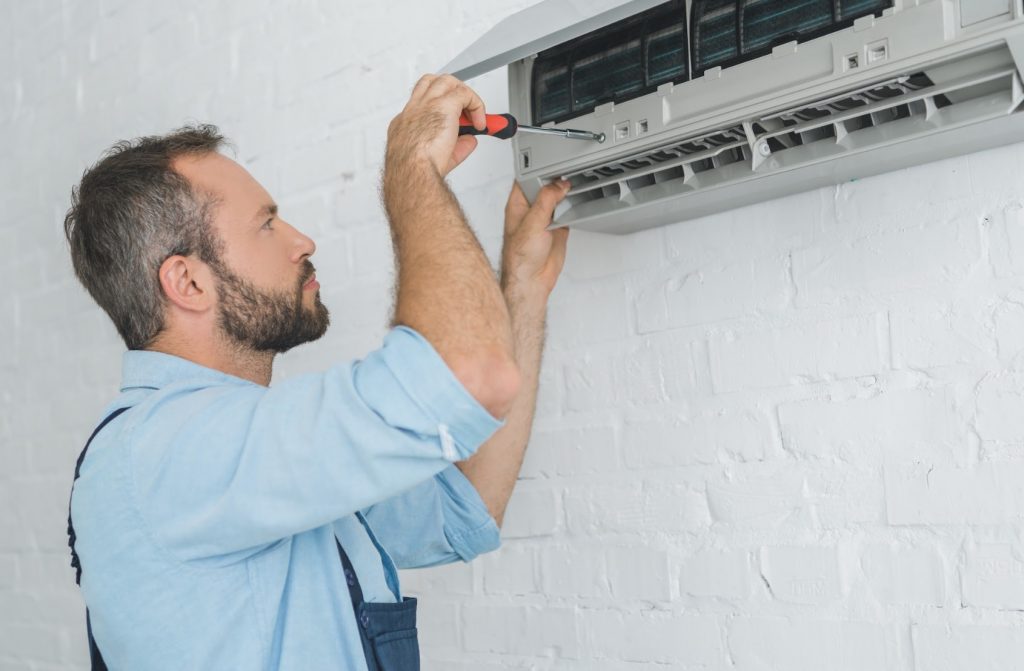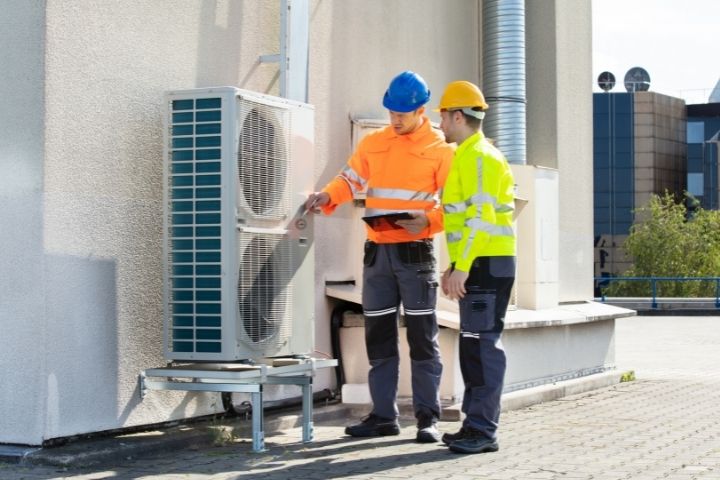
What’s The Difference? HVAC vs. Refrigeration Careers
Key Differences Between The Two 'Coolest' Technician Careers
Choosing between an HVAC and refrigeration career can be a tough decision.
Both fields offer promising job prospects and good salaries, but there are some key differences between the two.
In this post, we’ll take a closer look at each career path, exploring the specializations, refrigeration and HVAC training requirements, and salary expectations so you can choose the path that is right for you.
HVAC vs. Refrigeration: Defined

HVAC and refrigeration are closely related but distinct fields. HVAC focuses on controlling indoor climate for comfort, while refrigeration deals with cooling systems to preserve perishable items. Both involve complex technologies and play crucial roles in various industries, ensuring optimal environments for different purposes.
What is HVAC?
HVAC technicians install, maintain, and repair heating and cooling systems in residential and commercial buildings. They may also work on ventilation systems, which help to circulate air and remove pollutants. HVAC, meaning heating, ventilation, and cooling, differs from refrigeration.
What is Refrigeration?
Refrigeration technicians specialize in installing, maintaining, and repairing refrigeration equipment, such as refrigerators, freezers, and ice machines. They may also work on commercial refrigeration systems, such as those used in supermarkets, restaurants, and entertainment venues.
Specialized Careers in the HVAC and refrigeration industries.
Both HVAC and refrigeration offer a variety of specializations.
Some common HVAC specializations include:
- Heating and air conditioning technicians: These technicians play a crucial role in the installation, maintenance, and repair of heating and cooling systems in a diverse range of settings, from homes and businesses to industrial environments.
- Ventilation technicians: These technicians install, maintain, and repair ventilation systems to ensure efficient air circulation and the effective removal of pollutants, contributing significantly to enhancing indoor air quality and overall environmental comfort in various settings.
- Building automation technicians: These technicians are pivotal to the integration of cutting-edge technology, as they install, maintain, and expertly repair controls and systems that automate diverse building functions.
Some common refrigeration specializations include:
- Commercial refrigeration technicians: These technicians specialize in the intricate workings of expansive refrigeration systems prevalent in supermarkets, restaurants, and various businesses.
- Residential refrigeration technicians: These technicians focus on the personalized care of smaller refrigeration systems commonly found in homes and apartments.
- Appliance repair technicians: These technicians are versatile professionals, adept at repairing a wide array of appliances, ranging from refrigerators and freezers to washing machines and dryers.
Average Salaries and Future Prospects for HVAC and Refrigeration Professionals

If you are wondering, how much do HVAC techs make? Look no further than the Bureau of Labor Statistics. The agency reports that the median annual wage for heating, air conditioning, and refrigeration mechanics and installers was $51,390 as of May 2022. However, salaries can vary depending on experience, location, and employer.
Both HVAC and refrigeration are expected to grow in the coming years, with the agency projecting employment in these fields to expand by 5% from 2021 to 2031, which is as fast as the average for all occupations combined. This growth is driven by increasing demand for energy-efficient heating, cooling, and refrigeration systems and the need to maintain and repair existing systems.
Training and Requirements for Careers in HVAC and Refrigeration
HVAC and refrigeration technicians typically need to complete a refrigeration vocational training program or apprenticeship to work in those industries. These programs can teach you the skills you need to install, maintain, and repair HVAC and refrigeration equipment. Some states also require HVAC and refrigeration technicians to be licensed.
CBT Technology Institute, a premier HVAC school in Miami, Florida, offers two distinct programs to help jumpstart your career in either the HVAC or refrigeration industries.
CBT’s 20-month Associate Degree program in air conditioning, refrigeration, and heating technology will provide you with the skills and experience necessary to gain mid-level employment as an HVAC technician.
Alternatively, CBT offers an 8-month air conditioning and refrigeration technician program, which gives you the South Florida HVAC training necessary to earn an diploma and begin working in an entry-level position.
HVAC vs. Refrigeration: Which Career is Right for You?
If you’re interested in a career in the skilled trades, HVAC and refrigeration are both great options. The best choice for you will depend on your interests and skills. If you enjoy working with your hands and solving problems, then either career could be a good fit. However, refrigeration may be a better choice if you’re more interested in working with smaller, self-contained units.
No matter which career path you choose, CBT Technology Institute can help you get the training you need to succeed. With a variety of programs to choose from, CBT Technology Institute, Florida’s premiere technical school, can help you prepare for a rewarding career in Miami HVAC or refrigeration.
At CBT Technology Institute, our holistic approach to HVAC and refrigeration and the hands-on training we provide will allow you to discover which career best suits your abilities and goals.
